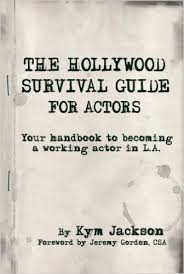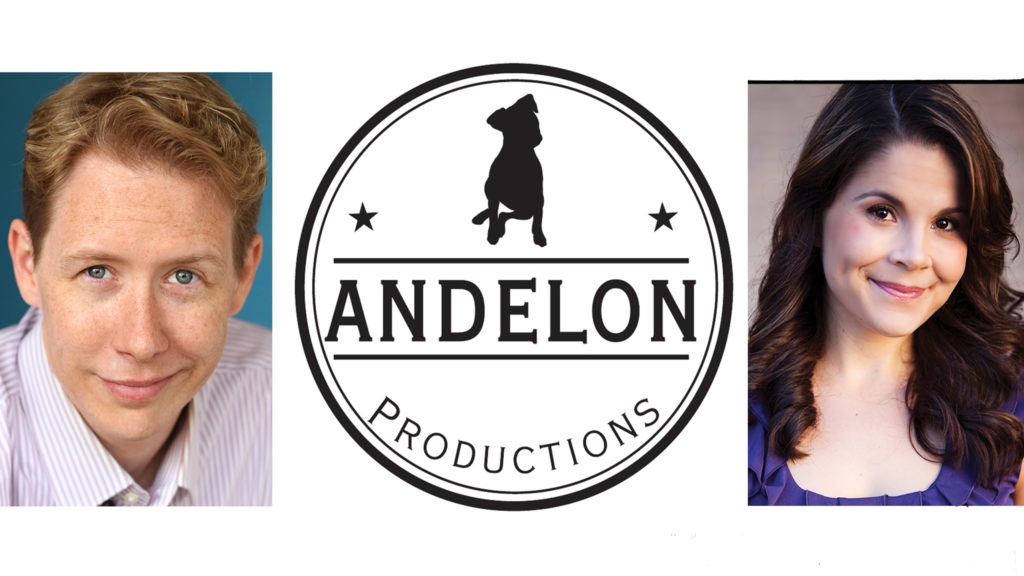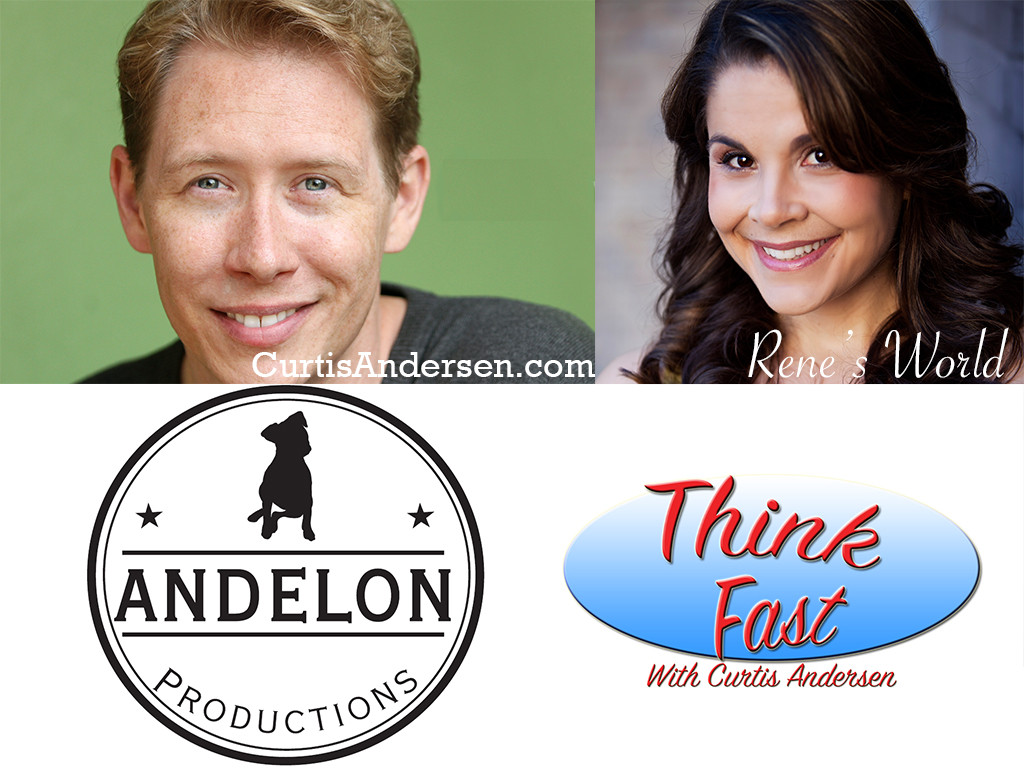

The following is a review of the book The Hollywood Survival Guide for Actors by Kym Jackson. It is billed as, “Your handbook for becoming a working actor in L.A.”
Here’s the TL;DR version: If you are an actor in Los Angeles or coming to Los Angeles you should own this book and read this book. In the 30+ years that I have been working in this business, this is, truly, one of the best books on being an actor in the modern entertainment industry I have ever read. I cannot give it a higher recommendation, it is brilliant!
Here’s the full review: When I started working professionally in the entertainment industry in 1985 things were very different from how they are now. First and foremost I was a child who was plucky, had done some amateur acting and wasn’t shy. I had a very supportive family and parents who were willing to do the leg work and driving. My dad was able to locate a reputable child manager who helped me get really good headshots and also referred me to one of the top agencies for children at the time. I had a charmed start to my professional career. I went on my first audition, to be the voice of Schroeder (the piano playing kid in the Peanuts cartoons) and booked it. Because I was small for my age, I was older to play younger for a long time, eventually playing a sixteen year old until I was well into my twenties. Because there were very few bumps on my road to early success I’m not sure that I had a real sense of just how tough this industry can be… until 2005.
In 2005 I was told, very plainly and without any malice, “I just can’t see you as a virgin anymore” by a casting director when I was auditioning to be what I had hoped would be another in a line of geeky teens that, until that moment, had been my bread and butter. In 2005 I went from “regularly working actor” to “barely auditioning actor” and my relationship to the industry changed. I’ll be really open about this, I don’t think I was capable of appreciating how good I had it. I look back now on those first twenty years and they really were amazing! I don’t wanna’ rest on the laurels of an old resume, but I’m still very proud of what’s on my IMDb page even if most of it is over a decade old. But I took it for granted. Mistakes were made. It’s easy to slip into the old refrain of, “if I knew then what I know now…” but regrets never got anyone anywhere and the past is a terrible place to live. Since I didn’t have to struggle when I got started I was horribly ill equipped to get my acting career back on track.
Enter the producing years!
What does every actor want to do after they’ve been acting a while? The correct answer is “direct” but I never really connected to that so I decided to be a producer. The original goal was to make things that I could be in, after all why not cast yourself in the movies you make? For the first project I wanted to just focus on one job, so I did not cast myself (a decision I’m still 50/50 on). There was plenty of work to do as a producer, especially on our small independent project. The budget was tight, down to the last dollar, so I was constantly managing something. This trend continued for the next several projects over the next several years. While my intentions to cast myself were good, a combination of workload and no appropriate parts conspired to take me, essentially, out of the acting world. I still do the occasional commercial here and there and do parts in friend’s projects, but no major theatrical work whether it be my projects or anyone else’s. What I was doing, though, was seeing the job of being an actor from a whole new perspective. In setting up casting sessions I saw that you’d probably only see about 60-75% of the people you scheduled for your audition – especially if it was non-union. That everyone is hustling for that “next gig” even agents and studio heads. The whole town essentially runs on moxie and bravado as opposed to contracts and handshakes (although those are important too). I learned more about the crew than I did in twenty years of working with them including how they are hired, how they are paid, and what it means when talent is late. I learned how the sales process of different projects works, including films, documentaries and television shows. Doing the hands-on work and being a part of every facet of the production process became a better education than proper film school. After a decade of fighting tooth and claw to get things made I came to the conclusion that producing was not the right thing for me and it was time to get back to what I really loved.
Back in the saddle.
At the end of 2014 I was just coming off a very successful turn as a board member of the Big Bear Film Festival and the first year of Fun Size Horror but I was ready to be done. Producing was lots of work and satisfying on a business level, but I really missed being an actor. After a decade of being committed to making things people had forgotten that I used to be in front of the camera and that kinda’ sucked. I didn’t like the idea of being the guy who “used to be an actor,” being one has always been part of my identity. So in 2015 I decided it was time to rejoin the ranks completely and get back to being a full time working actor…
…turns out that’s a lot harder than it used to be.
No longer the adorable eight-year-old, it has not been as simple to just “jump back in.” Now-a-days you are required to have a demo reel to be considered for even the smallest parts. Agents won’t even look at you without a strong referral or a good list of credits. Booking the jobs I used to get is a lot harder now since much bigger actors are now taking smaller parts in films and T.V. shows.
What I’m getting at with all this preamble is that I have had a very full and complete experience in the Entertainment Industry School of Hard Knocks. I’ve been up and I’ve been down and I’ve seen some shit. It’s taken me thirty years to learn all of this.
You can get it all in one book.
The Hollywood Survival Guide for Actors
Kym Jackson has succinctly and efficiently placed all of the knowledge that a new actor in Los Angeles needs in one very easy to read book that covers everything from moving to L.A. to booking the job. I have often run into people that are ready to tell you “how it is” in Hollywood but never have I read something that I both agreed with and was able to learn something new from.
This isn’t a book you just read and put down, it is a resource. The chapters are laid out in an easy flow that makes sense as you go along. I found myself trying to come up with questions rookies might ask as I went through it. Each time it felt like the next chapter was answer to at least one of those questions with the remainder not far behind.
The best part about this book is that it is CURRENT. When I first started acting in the 80’s this business was very different and I’ve seen more change in the last five years than in the last thirty combined! All of the information in this book is up to date and looks to remain relevant for years to come.
It is a book I recommend to my acting students and one that I would recommend to any one even thinking of giving L.A. a try as an actor.
Get it, read it. You’ll be happy you did.
Like this:
Like Loading...
 We have been hard at work on all of our new stuff and while we’re are still working on things like sketches:
We have been hard at work on all of our new stuff and while we’re are still working on things like sketches:






This, this, all the this!
If you are a creative, this video will sounds very familiar – but it’s a universal message. Lord knows I’ve been down this road a few times. Determination, persistence and touch of naivete is usually enough to win the day – it’s just the “day” in question usually lasts for years.
Share this:
Like this:
Leave a Comment
Filed under actor 101, actor stuff, art, artist, behind the scenes, commentary, doing new things, education, fail, failure, filmmaking, friends, fund raising, general, getting fit, getting started, happiness, how-to, inspiration, jobs, learning experience, making movies, productivity, projects, REVOLUTION, social commentary, video, videos, YouTube